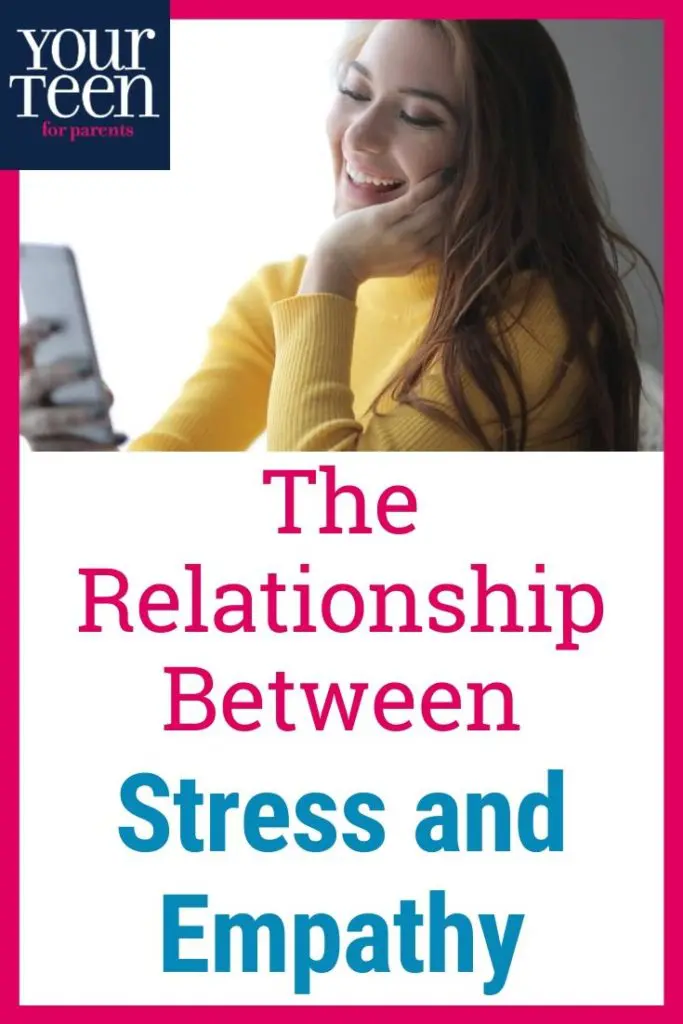Dr. Michele Borba, psychologist and author of Unselfie, explains the relationship between stress and empathy:
| [adrotate banner=”169″] |
The pandemic has added to the stress that teenagers feel. In addition to whatever was causing them to feel pressure before, now they are worried about their families and they are also missing their connections with their friends.
At the same time, teens do appreciate the fact that this time at home has helped them to reconnect with their families. Many of them also have time to do things that they weren’t able to do before like reading for pleasure.
This is also a critical time for teens to learn coping skills. The first step is to help teens identify their stressors and then help them devise strategies to cope. Parents can take the opportunity to have conversations with their teenagers during times when they are calm.
Empathy is one strategy that helps mitigate stress. There are three kinds of empathy and all are valuable:
Affective empathy is when we feel with someone. If our friend is sad, we are sad. Cognitive empathy is when we may not feel the same way as someone else, but we are able to stop and think about where the other person is coming from and try to understand their emotions or point of view. Compassionate empathy is when we are motivated to take action and do something to help others.
During the pandemic, many teens have engaged in compassionate empathy by making empathy bags for their friends and dropping them off at their houses. Others have reached out through texting to check in with friends.

In a very difficult time, there are indeed silver linings. Our teens are feeling the stress, for sure, but you know what? They are also demonstrating compassion that is inspiring for all of us.





